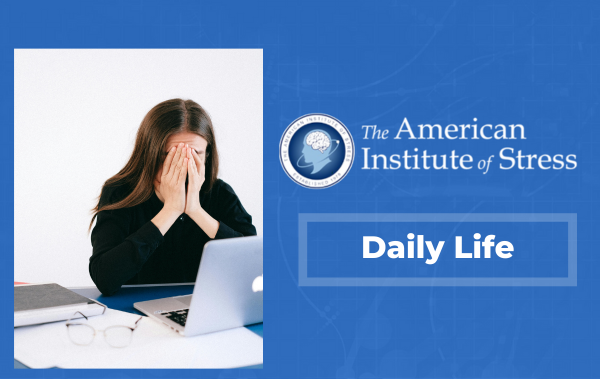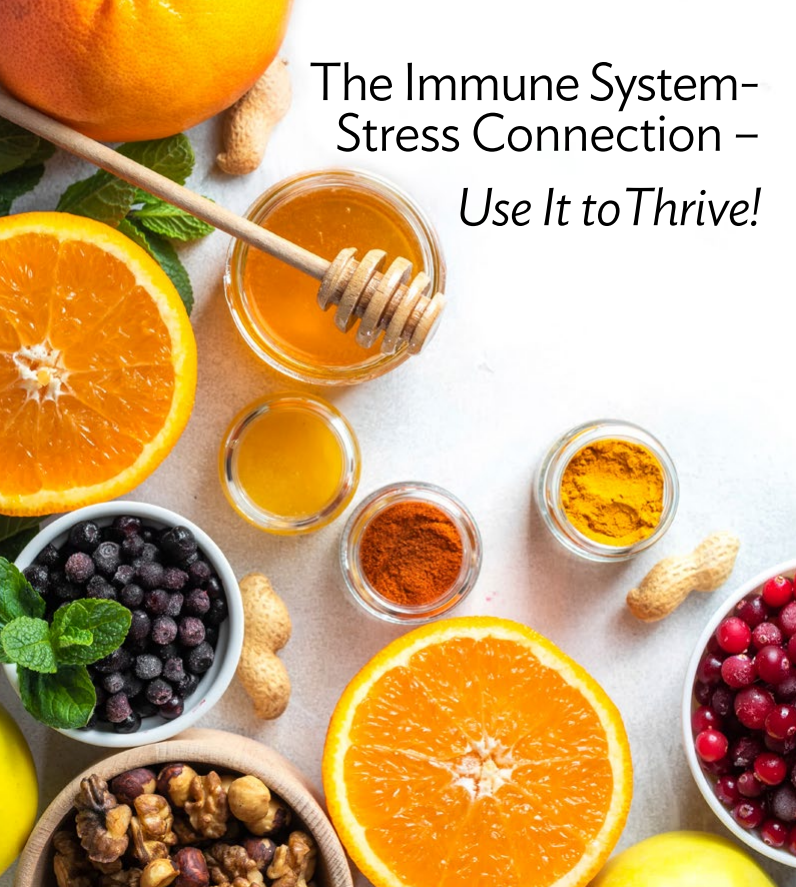
*This is an article from the Fall 2023 issue of Contentment Magazine.
By Cynthia Ackrill, MD, PCC, FAIS
Most of us grow up and move through our days not really thinking about our immune systems, or for that matter, the miraculous powers of our bodies and minds to repair themselves. We’ve all cut ourselves shaving or slicing and dicing. Sure, we wash it (the important part!), maybe slap on some antimicrobial goop and a Band-Aid, but that’s not what does the healing — our bodies do that part. Almost immediately, a multitude of specialized cells swoop in to stop the bleeding, defend against any foreign substances, create a temporary barrier, and over the next few days build bridges to mesh the sides of the wound back together. It’s an impressive orchestration of chemical signaling and cellular activity… until it isn’t.

Like our immune system, our stress reaction system is also there to protect us from the dangers of the world. 24/7 the brain stays on high alert, scoping out any possible threats from escaped tigers to cars cutting us off to sneers on our partner’s face. At any whiff of danger, the chemical cascade of the sympathetic nervous system is activated to make sure we are “ready” to defend ourselves — our hearts speed up, clotting cells gather, blood is sent to the large muscles of escape, even our senses are made more keen — all to help us fight or flee. This system is perfect for acute danger — we wind up safely in the other lane before we can even say, “Yikes!” But… when it’s chronically triggered, especially by thoughts or things out of our control, it can wreak havoc with the workings of all the other systems and our health.
It makes sense that these 2 systems are communicating in their work to help us survive a challenging world. In fact, all the systems of our incredible bodies need to communicate and coordinate for our well-being — and the vast majority of this full symphony is going on well below our level of awareness. (If you want to understand this on the nitty-gritty chemical level, check out Dr. Lewis Coleman’s impressive rendering of how emotions, stress, and immunity interact in the winter 2021-2022 issue of Contentment.1)
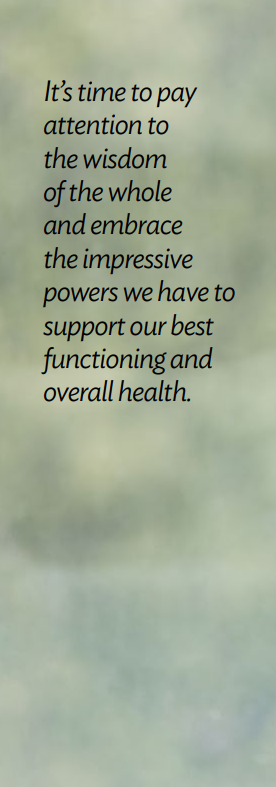 Remember the old song, “the knee bone’s connected to the thigh bone…?” After decades of medical advances, drilling down and separating out the workings of different parts of the body, it’s time to reconnect to pieces. These reductionist paths were necessary to figure out the chemical details of things like nerve signaling, blood pressure regulation, how our bodies handle sodium, etc. And these approaches led to advances in diagnosis and treatments we never thought possible — from cancer treatments to irradicating polio (almost?). But they also made it easy to lose track of several things:
Remember the old song, “the knee bone’s connected to the thigh bone…?” After decades of medical advances, drilling down and separating out the workings of different parts of the body, it’s time to reconnect to pieces. These reductionist paths were necessary to figure out the chemical details of things like nerve signaling, blood pressure regulation, how our bodies handle sodium, etc. And these approaches led to advances in diagnosis and treatments we never thought possible — from cancer treatments to irradicating polio (almost?). But they also made it easy to lose track of several things:
- The whole: the importance of the connection, communication, and coordination of all the parts and systems, including the social systems and environment. Each system can affect the workings of the others. And…
- The powers our incredible minds and bodies have to prevent disease, self-heal, and orient to health.
It’s time to pay attention to the wisdom of the whole and embrace the impressive powers we have to support our best functioning and overall health. We all know that when we are over-tired, we make more mistakes (our brains misfiring under stress). And we know that when we get run down, we are more prone to catching a cold from someone. On the flip side, when we are sick and our immune systems are working overtime, we don’t handle stress as well. Now the science is catching up to our wisdom and giving us solid proof that we can make choices and create thought and behavior habits that help our minds and bodies thrive.
In my early days as a physician, I never really understood why so much of the practice of medicine focused on waiting for something to go wrong (like blood sugar too high) and then “treating” it. I have always been drawn to wanting to know more about how to make it go “right.” I was fascinated by how a person’s mental state and attitude influenced their whole experience and often their outcomes.
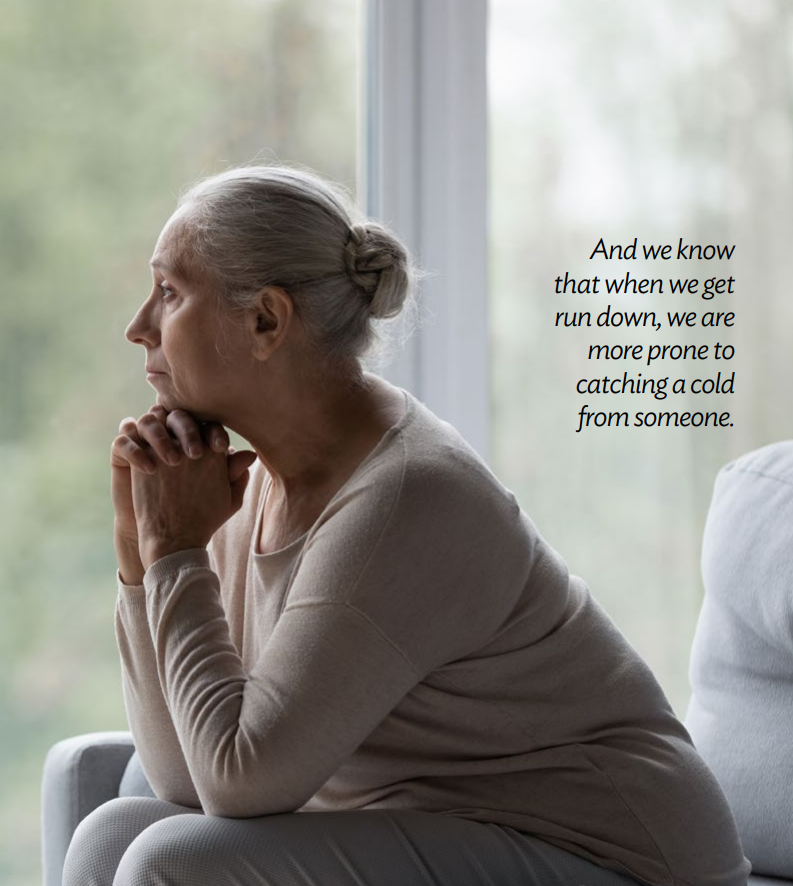
I also learned (too much of it first-hand) about the interactions of stress and immunity. It’s no secret that medical training is stressful. As an intern I was also struggling with infertility. Sadly, in a ‘just buck up’ culture, I was shamed for stressing about it. (Can you say, “More stress?”) Well, a couple of decades later, we now understand how stress can cause inflammation and how inflammation can interfere with fertility — duh! In fact, my poorly managed stress kept my immune system on overdrive until I am one of the 1 in 10 people dealing with autoimmune disease (a result of the immune system over-working to attack normal cells). And having an autoimmune issue is stressful. I’ve been forced to figure out the connections and employ all the tools I can to both handle stress more effectively and especially to embrace self-compassion along the way. (Yes, I am one of those people who learns to teach what they needed most!)
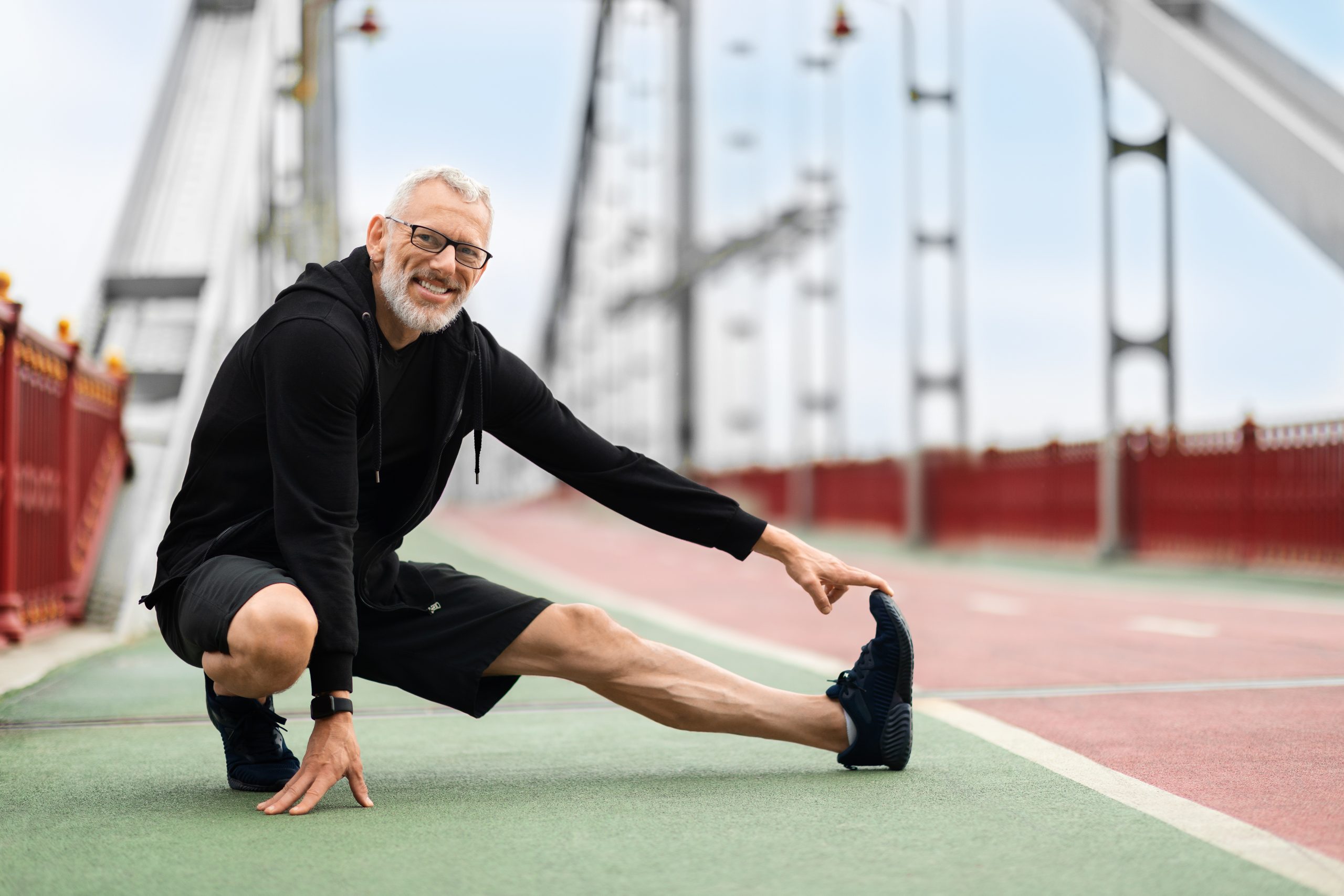
Recently, it’s been exciting to see more focus on “wellness” approaches, especially those such as functional medicine that emphasize the interactions of all the human health systems. Thanks to Covid, it’s also now much safer to openly discuss stress and learn effective ways to create less of it, leverage some of it for good, and learn practices to counter its negative effects. I’m thrilled people are finally realizing that what we put in our bodies matters — that food can actually turn genes on or off! And, as exciting as this shift is, I also think we need to be very careful — the marketing and profits of the associated $1.5 trillion (!!!) market can overwhelm or cloud both real science and wisdom.
So, what can you do?
- Firstly, read Contentment Magazine regularly. I say that because yes, it is near and dear to my heart, but also because it’s hard to sort out the deluge of information thrown at us daily: news that sensationalizes a tiny study about the “new, next best supplement” to relentless advertisements to the recommendations of well-meaning friends. We need to find resources we can trust to vet for real science. (Of course, there are many others.) Ask your doctor what to trust. Don’t take in too much at once.
- Brainstorm what areas of your life would benefit from some tweaking. Pick one that sounds not too hard to experiment with. Keep a light, compassionate heart as you do this — it’s not about getting everything right, it’s about slowly shifting to patterns that give you more ease and health.
- Appreciate your wisdom more. What do you know works for you?
- Keep an open mind and continue learning — we all need regular inspiration and motivation. Behavior change or creating new habits is not easy. We need regular “attention to our intention” to create new brain pathways to support the thought and behavior patterns we want for our best life. Consider hiring a coach to be on your team. Humans were literally not designed to go it alone.
- Build your toolbox of ways to best manage the challenges of life. Then practice them.
- And don’t forget to celebrate every little success… that helps your brain and your immune system do their best work!
Reference
- Coleman, Lewis. Contentment magazine, How Emotional Stress Can Kill You. www.stress.org/how-emotional-stress-can-kill-you. Access date, August 1, 2023.
ABOUT THE AUTHOR
 Cynthia Ackrill is a leader in the field of leveraging stress for optimal productivity, health, and happiness. With a background in primary care and advanced training in applied neuroscience (a look under the hood!), certification in wellness and leadership coaching, she combines the science of human performance with wisdom, humor, and heart to address the critical relationships between thinking styles, behavior choices, performance capacities, leadership effectiveness, health, joy, and deep career/life satisfaction. She served as editor of the American Institute of Stress Contentment magazine, is on the faculty of multiple leadership/coaching programs, and contributes widely to the media, including Katie Couric, CNN, Today Show and Huffington Post.
Cynthia Ackrill is a leader in the field of leveraging stress for optimal productivity, health, and happiness. With a background in primary care and advanced training in applied neuroscience (a look under the hood!), certification in wellness and leadership coaching, she combines the science of human performance with wisdom, humor, and heart to address the critical relationships between thinking styles, behavior choices, performance capacities, leadership effectiveness, health, joy, and deep career/life satisfaction. She served as editor of the American Institute of Stress Contentment magazine, is on the faculty of multiple leadership/coaching programs, and contributes widely to the media, including Katie Couric, CNN, Today Show and Huffington Post.
Contentment Magazine
The dictionary defines “content” as being in a state of peaceful happiness. The AIS magazine is called Contentment because we want all of our guests and members to find contentment in their lives by learning about stress management and finding what works best for each them. Stress is unavoidable, and comes in many shapes and sizes that makes being in a state of peaceful happiness seem like a very lofty goal. But happiness is easy to find once you are able to find ways to manage your stress and keep a healthy perspective when going though difficult times in life. You will always have stress, but stress does not always have you!

